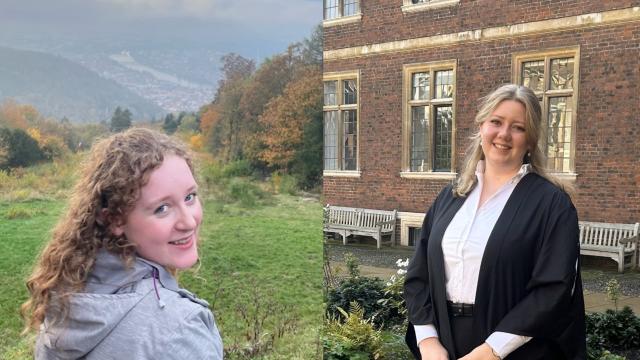Geography is one of the most stimulating, relevant and useful subjects to study at university. We live in an increasingly globalized and interdependent world where a volcanic eruption in one part of the globe affects air travel and the economy in another; where floods, droughts or wars on one continent have impacts on commodity prices in others; and where the short term economic decisions of a few can have long term social and political consequences for millions. We live on an increasingly fragile planet where the twin backdrops of global warming and population growth are causing rapid changes that are unparalleled in human history. These issues, and others like them, present immediate intellectual challenges which require careful monitoring and analysis and need practical and long term solutions. Addressing such issues is the core of modern Geography.
A Cambridge Geography degree, which spans and integrates the physical and social sciences and humanities, teaches quantitative as well as qualitative research methods, and involves fieldwork abroad, library and archival work, GIS and remote sensing, is both exciting in its own right and provides an excellent training ground for the future. It is no wonder that Cambridge Geographers are some of the most employable graduates in the country. Geographers go on to a range of careers in, among other areas, university research, environmental and developmental organizations, government and planning, industrial and commercial management, banking and accountancy, and teaching.
Faculty website: http://www.geog.cam.ac.uk
St Catharine's provides an exceptional environment in which to study Geography, with one of the largest and most lively groups of undergraduate and postgraduate geographers at Cambridge, and an international reputation for geographical teaching and research. Over the last decade, St Catharine’s has consistently been amongst the top three colleges in terms of Geography exam results, and has often been the top college!
The College has three Geography Fellows, teaching both human and physical geography. The current Fellows in Geography are Professor Ron Martin, Dr Ian Willis and Dr Ivan Scales. They specialise in: economic and socio-political geography; glaciology and hydrology; and environment and development geography respectively. The College Fellows are also the Directors of Studies. The College also has a Junior Research Fellow in Geography, Dr Alison Banwell. Her research focuses on issues of climate change and its effects on the Greenland and Antarctic ice sheets. In all three years St Catharine's can therefore provide specialist supervision teaching, to groups of two or three undergraduates at a time, from its own Fellows as well as from key experts in the University Department of Geography.
The College usually admits eight to ten undergraduate geographers each year and also has a thriving body of graduate geographers working for MPhils and PhDs. As well as having a reputation for excellent examination results, St Catharine's geographers are also known for their friendliness and involvement in college and university activities. These include coordinating the College’s Green Committee and Fair Trade Campaign, organizing overseas expeditions, and running the Cambridge University Geographical Society.
The College’s strength in Geography is reflected not only in its Fellows and students but also in the resources made available for geographical study. The College Library contains one of the best Cambridge college collections of up-to-date geography books and periodicals. Travel grants are available to support overseas fieldwork. There is also a booming undergraduate-run College Geography Society (the Steers Society) named after our former Fellow, Professor Alfred Steers, who was University Professor of Geography and a leading coastal geographer. The Society organizes discussion sessions, social activities, and a popular annual dinner.
The admissions offer for Geography is typically A*AA at A Level (or equivalent). Applications are warmly welcomed from all candidates whose schools consider them capable of achieving these results. There is no preferred pattern of A Levels (or equivalent) for Geography admissions, successful candidates having a range of science, mathematics, humanities and social science qualifications. While most candidates have a Geography or Environmental Science qualification, this is not a prerequisite for successful entry.
Candidates are given two interviews, one general interview and a subject interview. The subject interview will be with one of the Directors of Studies in Geography. It is informal and aimed at giving all candidates the opportunity to talk about geographical questions and issues in an interactive discussion. Candidates are given a magazine-style article to read prior to the interview, which forms part of the discussion.
Find out about the general advice for anyone applying for undergraduate courses at St Catharine's.
Coming soon!



